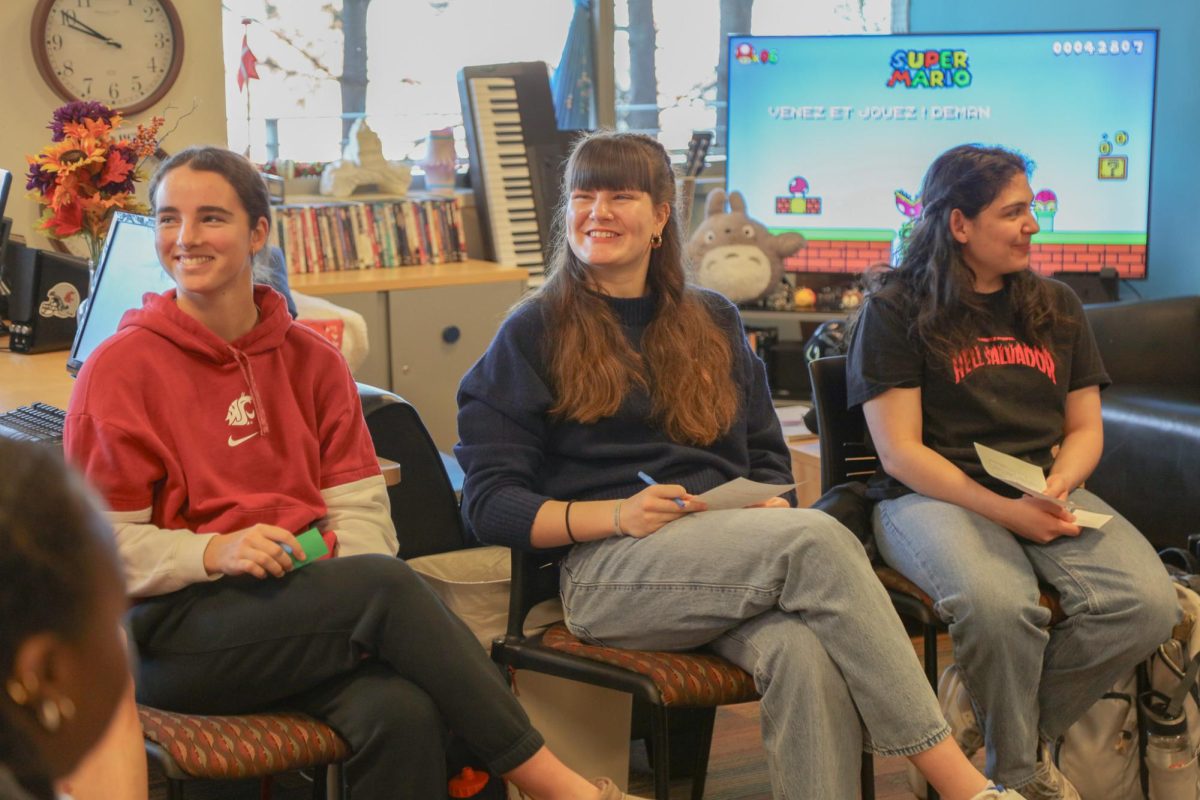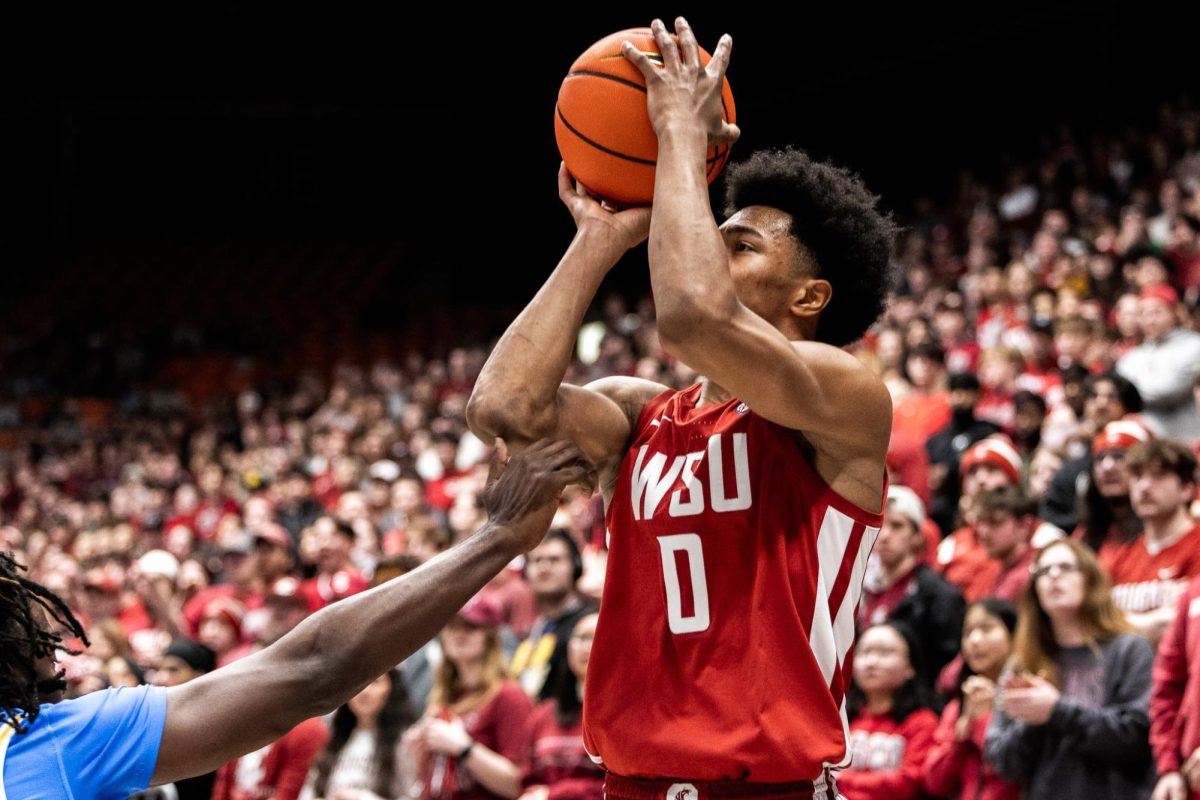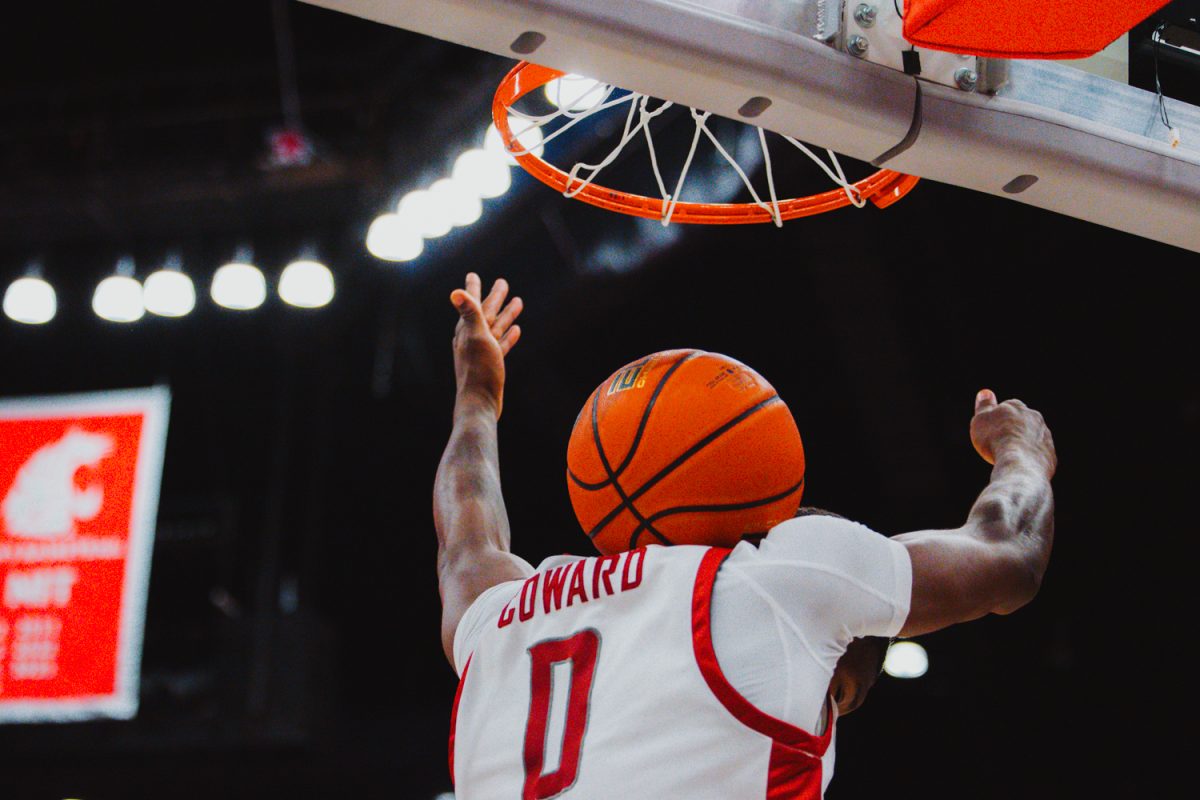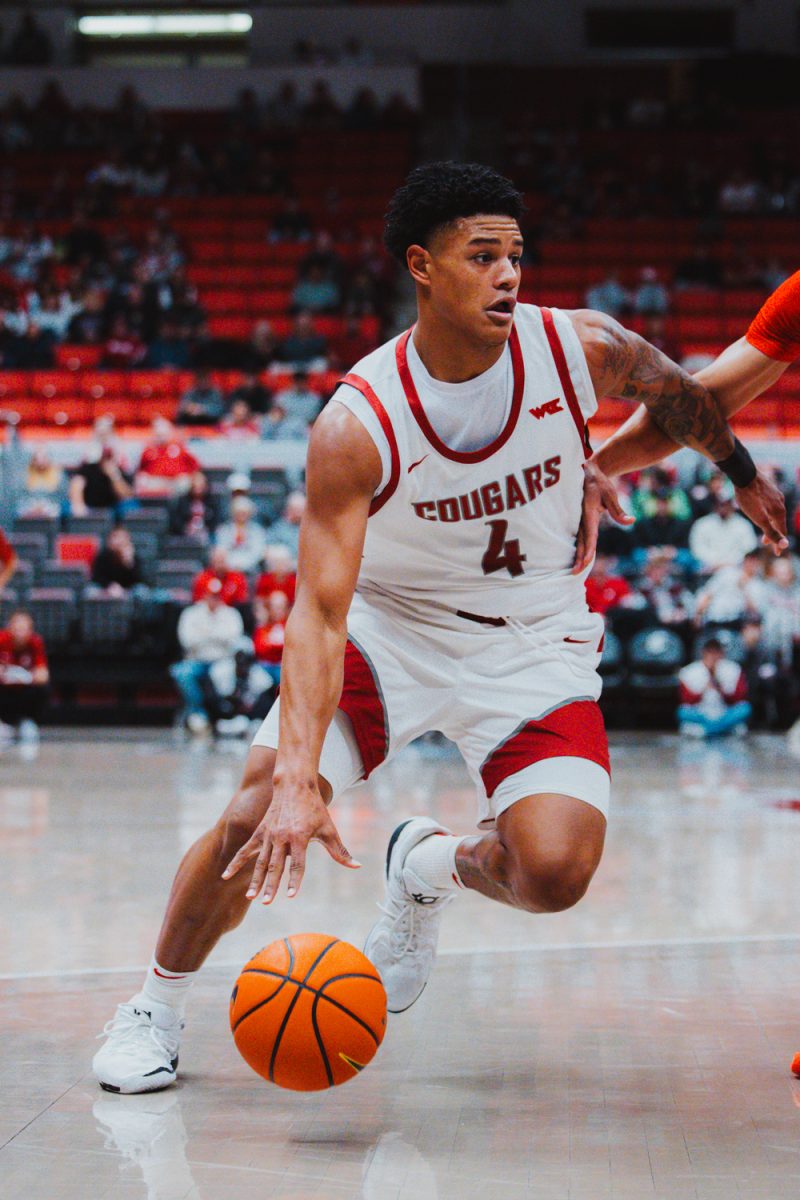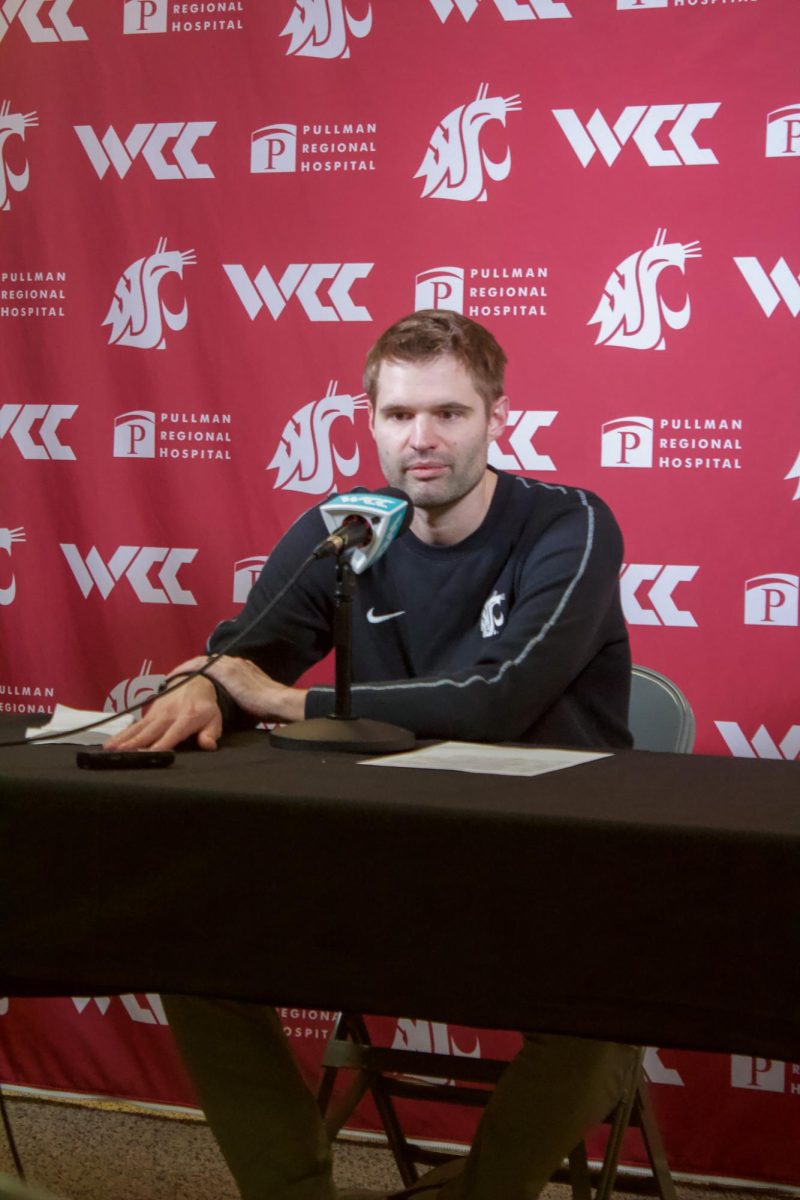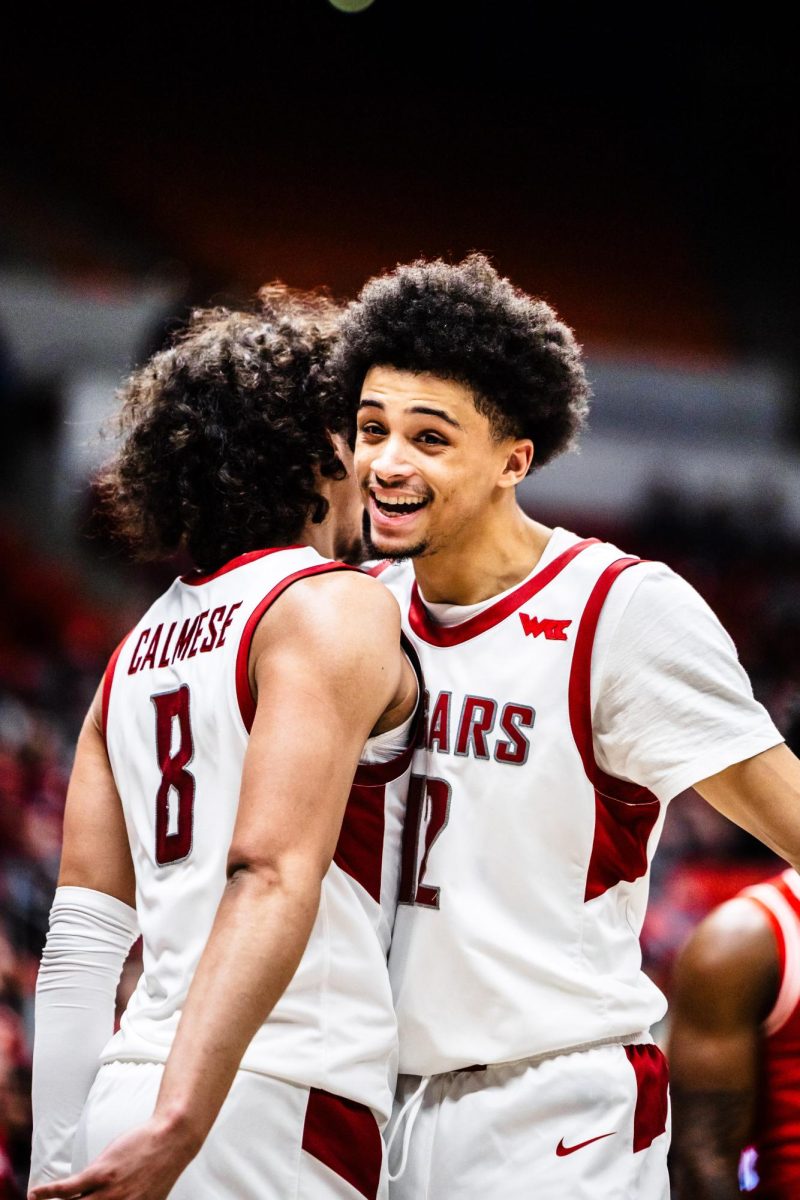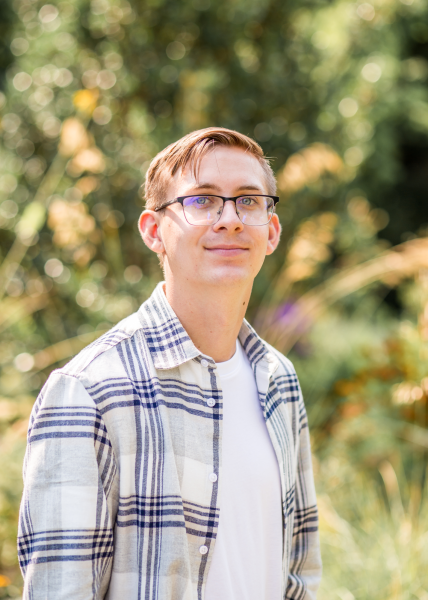Cougs from Turkey, Cambodia, South Korea and more joined the WSU women’s basketball team Friday for activities full of passionate storytelling and informative conversation.
Held in the International Center, the event was a collaboration between the center and the basketball team as a part of the “Coffee Hour” series the International Center hosts every Friday. The weekly event is typically from 3-4 p.m., where students and guests discuss a wide range of topics related to international and U.S. culture according to the WSU International Programs website.
Giovanni Fiorenzi, 23-year-old WSU athletics marketing intern, said the team reached out to the international center about having players talk and allowing students to get more involved with the team through the “Coffee Hour” series.
“Since it’s a very international team, 10 players who are international, we tried to reach out to the international center for one of the events that they have every Friday,” Fiorenzi said. “We just told them to bring in some players because we want people to know players as people and international students as they are.”
In the time since WSU head coach Kamie Ethridge was hired seven years ago, Cougar basketball has been headquarters for a large number and wide variety of international players, with this year’s roster containing the most foreign-born players of her tenure.
Students were joined at the event by six basketball players: Alice Dart (Australia), Candace Kpetikou (Benin/Niger), Jean Chiu (Taiwan), Marta Alsina (Spain) and Keandra Koorits (Estonia). Matt Smith, the team’s assistant coach, and freshman tennis player Martina Puvill (Spain) joined in as well.
The Cougar players and a group of students participated in a variety of activities including bingo, heads-up and group conversations to spark discussion of international experiences and the transition to the U.S.
While some participants may have been hesitant at first, the opportunity to share fun facts and the best parts of each home country led to a flurry of engaging stories.
Dart, a freshman guard, shared her dog ate her cat when she was younger. The story brought mixed reactions of laughter and concerned looks.
Dart also brought up her experience with cooking in the dorm.
“I don’t cook a lot in the dorms,” Dart said. “It’s a little bit hard, but I’ve gotten a lot of people to try Vegemite, which is like an Australian thing. (Keandra) loves it.”
“I love it,” Koorits said, chiming in with a playful smile.
The carefree and natural connection between the players was evident throughout the hour-long event as they continued to share their experiences.
Chiu, a junior guard, named Justin Bieber as her favorite artist with the clear influence and encouragement of Koorits. When Alsina, another freshman, missed a part of the question, Kpetikou was quick to call her out. The connection between two Barcelona natives, Alsina and Puvill, also shined through when Puvill explained what she does in her free time.
“I love to sing, and also annoy Marta in my free time,” Puvill said as the two players laughed.
Since beginning his internship and work with the team in January, Fiorenzi said he has noticed the strong connection between the players.
“They seem like a team that is very together. They are friends and probably the fact that most of them are international and are in a common situation, that adds to them being together,” Fiorenzi said.
A major theme that emerged in the latter stages of the event was the difference in education between the U.S. and abroad. Many of the players felt their education at WSU was easier than back home.
“In Estonia, I would say that it is a little bit harder compared to what is it like in the States,” Koorits said. “We have a lot more exams, but I would say that the participation part, like many classes here, take participation, but in Estonia, you don’t have to go to classes in university. You can choose if you want to go or not, you don’t get any points taken off. But it’s just like your responsibility to do good on exams.”
Koorits also said there are fewer dorm options in Estonia and education is free because the government pays for it.
Kpetikou said she found her education to be easier once she moved to the U.S. The redshirt freshman moved to the U.S. in high school where she attended Saint Joseph High School in Saint Maria, Calif.
“I would say the biggest difference I noticed is how easy school is here,” Kpetikou said. “I feel like when I was back home, the workload was insane. During Christmas or Thanksgiving break, or at the start of any holiday, the teacher would give us a ton of exercises and homework that we have to do. But here, when it’s break, it’s break. You don’t do any schoolwork, it’s just you’re in break. So, I feel like that kind of like shocking to me.”
Multiple people also noted the difference in the connection between education and sports.
“In Italy, it’s cheaper, way cheaper, but you pay to just attend classes, have exams, and like you go to class, come back home and you don’t have campuses like this,” Giovanni said. “And also, sport is not such a big thing, it’s disconnected completely from the university.”
“I’ll say again, sports is not really related to the school,” Kpetikou said. “It’s true that we do physical education, but no extracurricular basketball, volleyball and all of that. If you want to do that, you have to sign up for a club or something like that.”
The discussion reached its most serious point when Kpetikou talked about the remaining presence of beating and spanking as punishments in African schools.
“One really harsh thing, and it’s kind of sad and it’s still happening to this day, is people get beat in Africa at school,” Kpetikou said. “If you have like a bad grade, you’ll get a spanking or if you didn’t recite your lesson.”
Kpetikou also harked on the topic of slavery and said Benin has tourist education activities like walking the path slaves took to ships leaving from the country to the Americas and the Caribbean.
The event wrapped up with a competitive game of heads-up before students and athletes parted ways.
Sophomore Ji Hu Jeon, one of the event’s discussion leaders, said the main goals of the International Center and events like the “Coffee Hour” series are meant to allow students to experience American culture and other cultures in different areas and centers on campus.
For Jeon and Forenzi, who both had a hand in the planning of the event and are from other countries, the transition has been rooted in different areas.
For Jeon, who is from South Korea, the education system has carried a noticeable yet positive change.
“I like the concept they have of trying to teach students, which is kind of different from our education system,” Jeon said. “The campus is larger, so it’s kind of hard to find the best part. I think it’s better because we have, like bigger whiteboards and like a better electric system.”
On the other hand, Forenzi said his transition has been great, aside from food, because of the welcoming community he has met since coming to WSU.
“But except for [the food], I’m really enjoying it,” Forenzi said. “Maybe the first month was like a little harder, but people here, especially for the basketball team, are very great people. And maybe the fact that Pullman is not a city is why people are being so welcoming.”
The event was a prime opportunity for the student-athletes to connect with other students experiencing a similar situation to them. Friday’s activities were also a much-needed break for a team that has been on a gauntlet schedule over the past few weeks and is preparing for the West Coast Conference tournament. The players had just flown back in from a road game in California against Pepperdine.
The Cougs had the weekend off and will not play again until 2 p.m. Sunday in Las Vegas.


